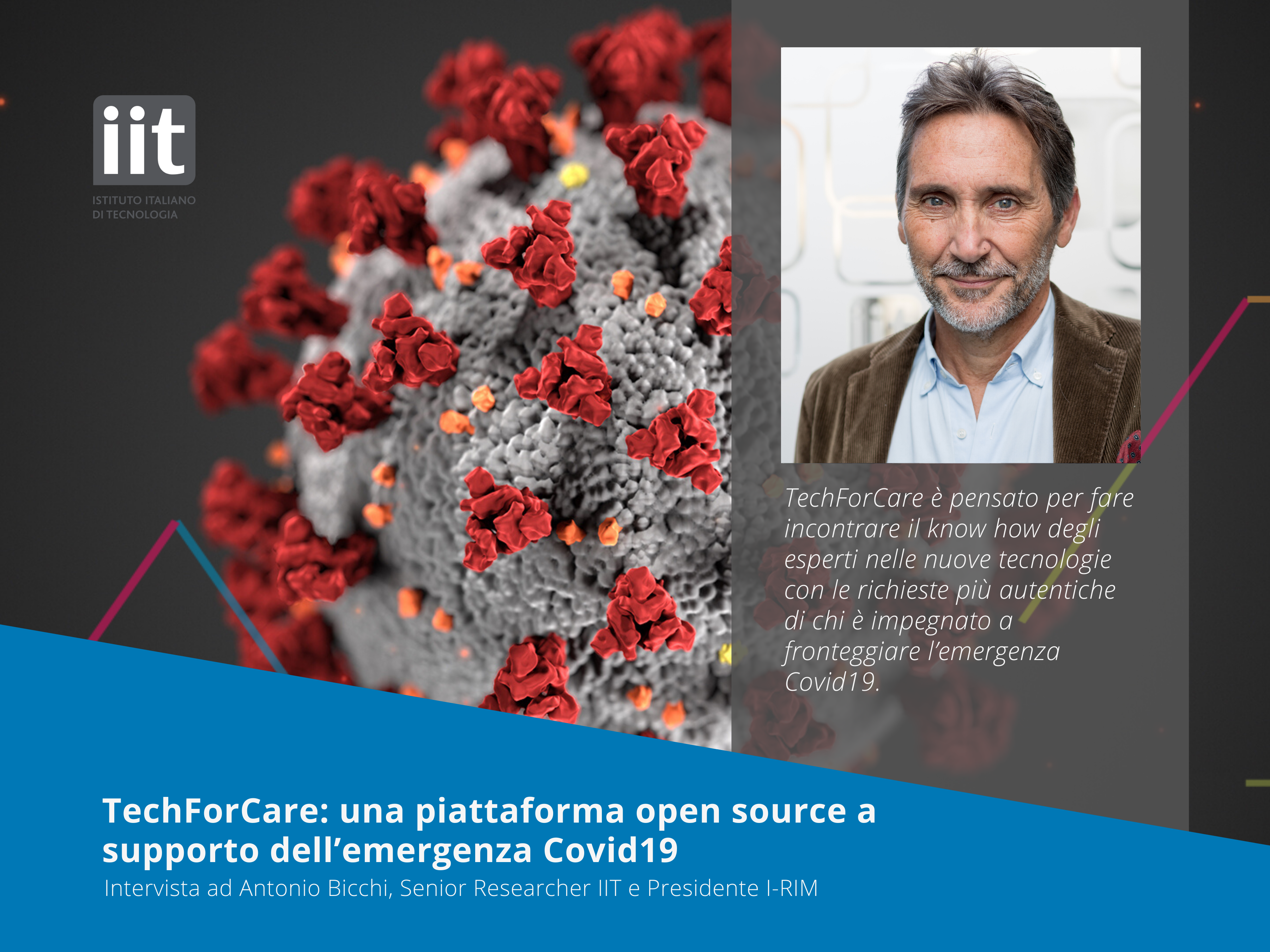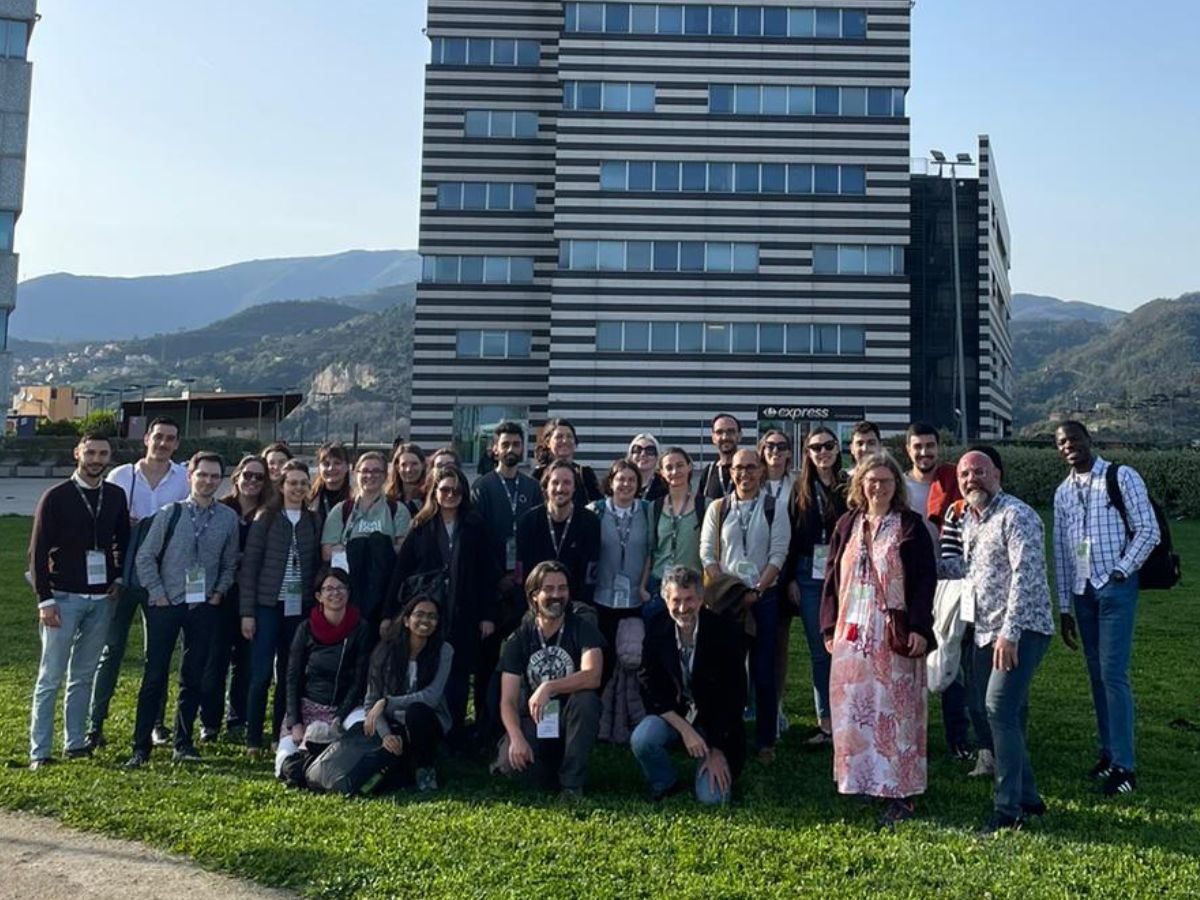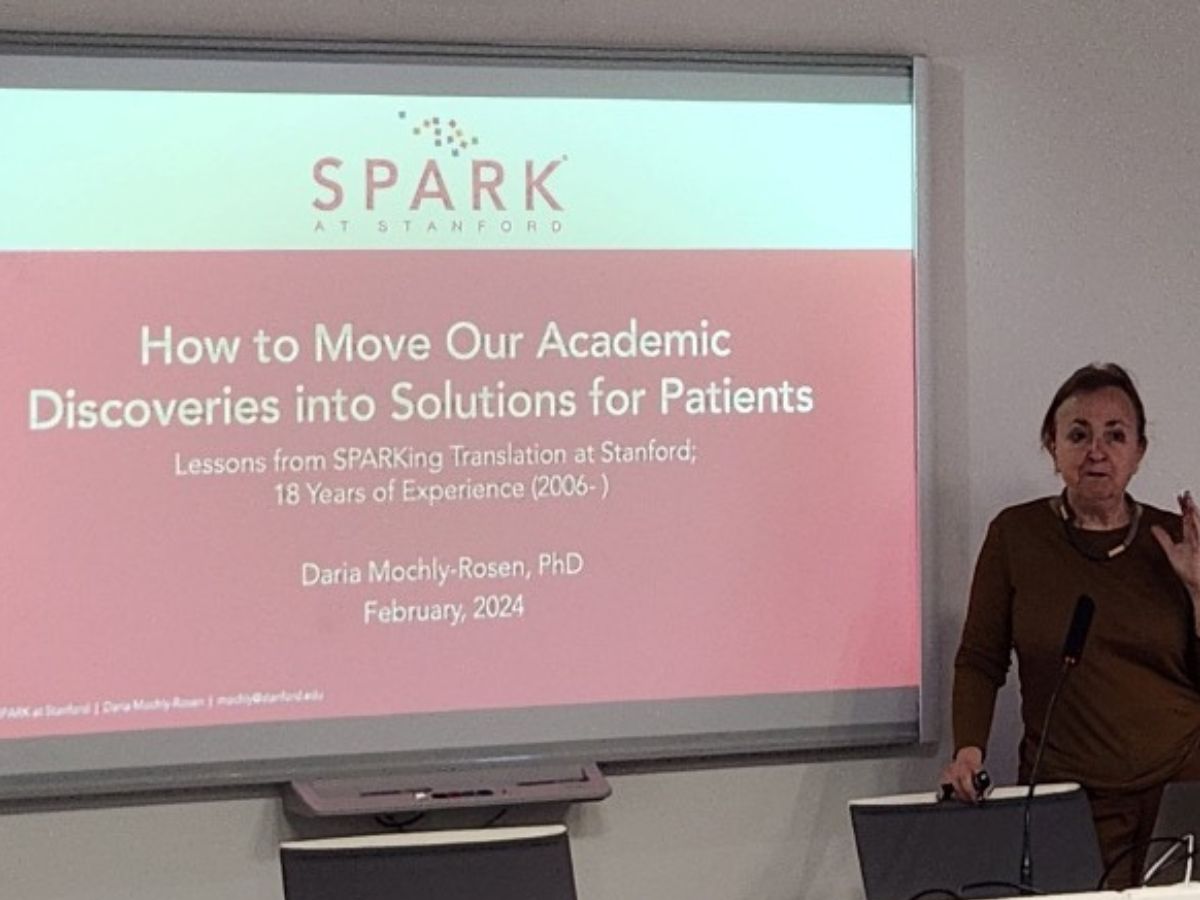TechForCare is bringing together experts in new technologies with the most stringent demands of those facing the Covid-19 crisis
TechForCare open source platform was created on the initiative of I-Rim, the Institute for Robotics and Intelligent Machines, which combines the most visionary academic research and industry open to advanced technologies, and Maker Faire Rome – The European Edition, a meeting point of the community of makers and innovators. It is an open innovation hub in the search of new ideas to increase the number of projects that are potentially useful to tackle the pandemic from Sars-Cov-2 and map out new production and social cooperation models. The TechForCare platform has brought together the participation of Italian leading companies in robotics research, among which IIT, and the active collaboration of the Maker Community, including the Milan Opendot Fab Lab. We phoned Antonio Bicchi, the Chairman of I-Rim, coordinator of the Soft Robotics for Human Cooperation and Rehabilitation line of research at IIT, and also a professor at the University of Pisa.
Professor Bicchi, what is TechForCare?
It is a common digital space bringing together the consolidated and official know-how of the communities of experts in new technologies with more authentic requests of those doctors, nurses and all operators who have for weeks been committed to tackling the Covid-19 crisis. These people are at the front line and are testing first-hand what is lacking right now, what could facilitate the work, and which procedures make them feel increasingly exposed to the risk of contagion.
How did you come up with the idea of creating an open source platform?
In recent days we heard it all in the news. Several creative and unexpected solutions emerged, sometimes even do-it-yourself, to help those who are actively involved in assistance interventions. The maker movement, academia and research centres have reacted with their heart, ideas and technologies. As Chairman of I-Rim, together with Maker Faire Rome, we thought it was important to organise these efforts, to coordinate and sift through initiatives in order to share promising projects and prototypes. This is the platform’s main goal.
Does TechForCare, to some extent, want to be a point of reference for those who, at this moment, believe in technologies as a response to the pandemic?
Exactly, TechForCare wants to offer concrete and verified solutions, replicable in several local situations for the many real problems that need to be resolved in the short-term.
Who can access TechForCare?
The projects will be accessible and available to everyone: operators will be able to indicate their needs and research centres, makers, developers and professors will be able to upload the projects. We believe that the platform will facilitate meetings with producers and fablabs in Italy, thus hoping to speed up the process of creating prototypes and eventually production.
What difficulties exist today for moving on from a possibly-useful shared project on TechForCare to the first tests in the field?
We are talking about hundreds of hospitals, hundreds of thousands of people involved and deadlines…moreover, we must also consider the logistical difficulty of delivering the prototypes for testing to places where they could be useful. The difficulties of applying the most advanced technologies are enormous. Nevertheless, in recent years robotics research has produced many technologies that have now become a part of readily-available commercial devices. The I-RIM community believes that by uniting all the forces that design and produce advanced technologies, artificial intelligence and robotics in Italy, in Europe and the world, useful contributions can be given by seizing those fruits which the research tree already offers today on its branches that are within our reach.
Professor Bicchi, current events demonstrate that research in the area of robotics is dealing with real needs much more than we had imagined. Is this so?
Robots and intelligent machines can be of real help to the sick, caregivers, to those who are continuing production in essential services and those living in abject conditions in their own homes. There are specific lines of research at IIT which have been working for years on the creation of very advanced autonomous and semi-autonomous robots which could intervene in emergency conditions: robots for assistance at home or in hospital departments and even robots to support the production of essential goods in industry, agriculture and services. Many of these solutions, which IIT and others have already tested in the field, but not yet commercialised, are catalogued among the I-RIM website’s pilot projects. Today, the numbers in which we can produce these robots are small, but under the impetus of the crisis we are experiencing, we will certainly have a strong social demand for robots that can help us in our future.





